David Thompson Speaks
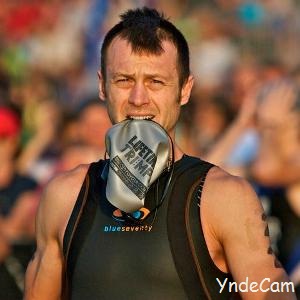
David Kennedy Thompson (also known simply as DKT) is a long-time American professional triathlete. With a humble and calm demeanor, his persona flies under the radar – that is, until you watch him race..
Slowtwitch: Thanks for the interview.
David Thompson: No problem; I love interviews. In fact, there’re probably on my top-100 favorite things to do… which is why I do so many.
ST: For those who may not know of David Kennedy Thompson, please tell us a little bit about your background and how you got in to triathlon.
DKT: I found triathlon through injuries and other sports. In high school, my neighbor and I started riding bikes to school to increase our training volume for track. Lac qui Parle Valley High School was a coalition school located in a farm field between towns. The 9 mile ride seems minor now, but it was an adventure for us. Conditions were unfavorable: no shoulder, eighteen-wheelers, no helmets, borrowed Schwinn 10 speeds, and no spare tubes. Ignorance was bliss. Anyway, that’s how I got my start with road cycling. Soon, I blew all my graduation money on the most expensive road bike at the local bike/vacuum dealer 30 miles away. I pointed at the best bike in the Schwinn catalog had it special ordered. At $960, it was definitely the most expensive bike in the four county area.
I picked up competitive swimming in college while aqua-jogging as rehab for a stress fracture. Aqua-jogging got extremely boring, so I started swimming instead. A friend from the swim team who was hanging out at the pool helped me out with technique, flip turns, and workouts. That summer, I found an ad in the classifieds for a triathlon 3 hours away. I talked my old high school buddy into doing the race and the rest is history.
Along the way, I got a commission in the US Navy, a pilot’s license, went through undergrad in marine systems engineering, a masters in nuclear engineering, worked all over Asia, and met my wife. I met Hannah while we were both working on are masters at MIT in Cambridge, MA. She is the one with the superior intellect.
ST: How many times per year do you race?
DKT: I’m down slightly from my peak of 25 races a year. Last year, I was around 20 races. Consecutive injuries starting in 2008 forced me to cut back: two hernias, fractured wrist, fracture finger, dislocated shoulder, and patella chondromalacia.
ST: You primarily race Olympic and Half, but jump in to an occasional long-course race or duathlon. What would you say your strength is? What is your favorite?
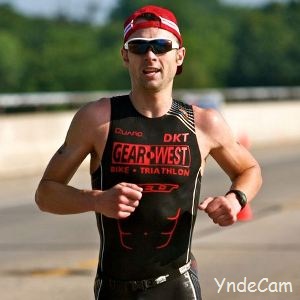
DKT: Experience is probably my strength now. My swimming is better, but not as fast as the top swimmers (and probably never will be). I started too late. My biking is down a touch from my peak in 2007. And, my run comes and goes. So, non-drafting Olympic races are probably my strength, but when I’m healthy for a stretch I’m decent at a half. I have enough races under my belt now that I can jump into one without too much recovery and soreness the following week.
ST: We seem to see you racing a lot of Rev3 and Toyota series races, but nothing on the WTC schedule for a couple years. Why is that?
DKT: The Rev 3 races pay well and fit into my schedule. Life Time Fitness Minneapolis Triathlon is just out my backdoor, so the Rev3 and some of the Toyota series race are annual events. From my experience doing Rev3 Cedar Point Full twice, iron distance racing isn’t for me. Cedar Point is a great race and part of a great pro series. The distance just isn’t my idea of racing and does too much damage to old injuries – mainly my patella chondromalacia. I’m also skeptical as to where the WTC $750 Pro Member will lead. Currently, you need it to race 70.3 and Ironman races, but I’ve still been able to be a part of WTC’s 5150 series. Hopefully, the 5150 series stays separate from the “Pro Membership,” but we really don’t have a stay in that.
ST: Please tell us about your relationship with Gear West Bike and Triathlon.
DKT: Kevin O’Connor hired me part-time during my summer break and then full-time straight out of grad school. Kevin had a plan to put in a small nuclear reactor after he bought the store, but it never came to fruition. It took Kim Jong-il too long to enrich his uranium, so Kevin just let the plans fall by the way-side. Thus, my master’s degree never got put to use. I digress.
Kevin and Gear West Bike & Triathlon have been great for me. Kevin helped support me as an age grouper and generously offered me a work sponsorship deal which allowed me to gradually go from working full-time to racing full-time and working at the shop just a little. During this time, Gear West had also changed from a family bike shop with a few tri bikes to a full-on triathlon store (that’s still good with family bikes, too).
When I think about it, Gear West has helped my triathlon career directly and indirectly. Gear West is my main sponsor. But, Kevin and Gear West were also a huge part in growing Minnesota’s triathlon community. There are around 60 triathlons and duathlons in the span of 4 months here in Minnesota and Gear West sponsors 40 of those races. I learned how race at these events and believe it’s an asset to have these races available any weekend. Gear West has supported these local races through the good and tough times.
ST: Please describe a typical training week for you during the race season
DKT: It ranges from 10 to 30 hours/week. Average 15 hrs/wk. This is a typical in-season week with 15 hours of training.

ST: You’re known for being a very strong cyclist, both in terms of physical strength, and technical skill. What advice can you give to amateurs to improve – preview every course? Do interval training? Other?
DKT: I think the amount of anecdotal information about bike equipment and training available to people is almost counterproductive. It’s almost impossible to provide worthwhile information to people in a few sentences. However, here’s my attempt.
1. For newbies, acquire some first-hand experience for yourself just doing races. Don’t research the heck out of it.
2. If you’ve done a few races and are looking to get better… Yes, preview the course. Pay attention to corners in order to limit your braking. Don’t bother previewing the course if it’s an ironman (ask someone or look online). Adding intervals or intensity to your training program will help you improve.
3. If you’re looking to upgrade equipment and don’t know what you’re doing, develop a relationship with a shop. Different shops may have slightly different opinions, but you can pick a shop that matches you.
4. Going fast requires discomfort in training and racing. Even if you’re talented it hurts.
The two-photo series below shows off David's bike handling skills at the 2012 Life Time Fitness Triathlon in Minneapolis. A young spectator nearly ran in David's path – and they both did mid-turn course corrections to avoid collision.


ST: What is your philosophy on bike fit for triathlon? It looks like you ride with quite a bit of “drop”.
DKT: There is only one philosophy of bike fit for triathlon. It’s called the “triathlon bike fit”, which keys off a steep seat tube angle and shorter reach so you upper body is resting on the aero bars. If you want something different you can get a “road bike” fitting. There is also the UCI-legal TT bike fit and probably some new gimmick fitting system announced last week. I think biking fitting has been so diluted and overblown by different bike companies, “professional bike fitters”, and the industry as a whole, that new triathletes are totally confused. People pay $600 to someone with the newest fit certification and no experience when they could go to someone who’s fit 3,000 triathletes over 20 years and charges $100. I’d rather go to the guy who can just look and fit in me a few minutes and cost 1/6th as much.
ST: Guys like you and Matty Reed seem to race all the time – what is life-on-the road like? Glamorous, boring, easy, hard, other?
DKT: It’s definitely not glamorous even if you do get upgraded to first class. I have found it to be boring, easy, and hard. Traveling with a bike has become just as easy as flying without one for me. I have a travel-only bike and keep it packed all the time. I just load it in the truck on the way out the door. I try to fly direct every time, but I still get stuck bored out of my mind at airports when the inevitable delays occur. After 20 weekends on the road I’m worn down and eager to stay home and work on my house. The idea of putting up new siding or drywall sound great by October.
ST: What goes through your head during a race?
DKT: It changes every race and throughout the race. It depends on what’s happening around me. I could be accessing perceived strength and weakness based on the competition around me and formulating a plan. I’ve also found myself contemplating my how much time I have to pack my bike and get to airport to make my flight home.
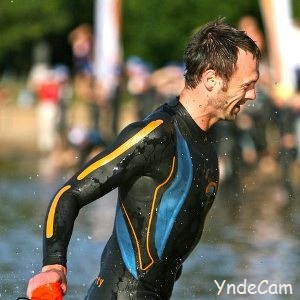
ST: What’s your pre-race breakfast? Do you have any nutritional guidelines for yourself in training?
DKT: I don’t have a routine. Cereal, toast, fruit, swag energy bars, coffee, dough nuts, cold pizza, or McDonald’s breakfast on the way to the race are all possibilities.
ST: We hear your wife is expecting any day now – can you share whether it’s a boy or girl?
DKT: Anders Kennedy Thompson was born four weeks ago. Anders is pronounces On-ders. We’re super excited. I’m getting more sleep than my wife.
ST: How is sponsorship going for you?
DKT: It’s great from my point of view. I’m happy with how Gear West Bike & Triathlon, Felt, Blue Seventy, Giro, Continental, SRAM, Zipp, and Two Toms have treated me. I’m not super aggressive about finding a big non-industry sponsor, but I am open to it.
ST: Anything else we should know?
DKT: I won New Orlean 5150 a few weeks ago. Fourth at the NYC tri.
"Life isn’t fair and then you die, so harden the f*&k up." –Combining quote from David Sullivan and the Australian guy from the internet.
The world is round. The increased amount of carbon dioxide in the atmosphere causes the earth temperature to rise. Climate change is real, and human behavior is the driving factor in climate change. These are observed facts. Certain aspects may be not fully understood and are under debate. But, that doesn’t change the fact that the wealthier nations are destroying planet and poorer people will disproportionally suffer the consequences.



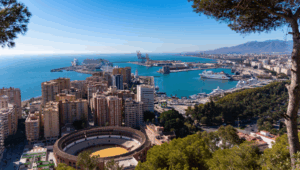
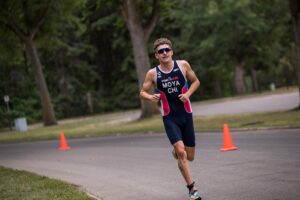


Start the discussion at forum.slowtwitch.com